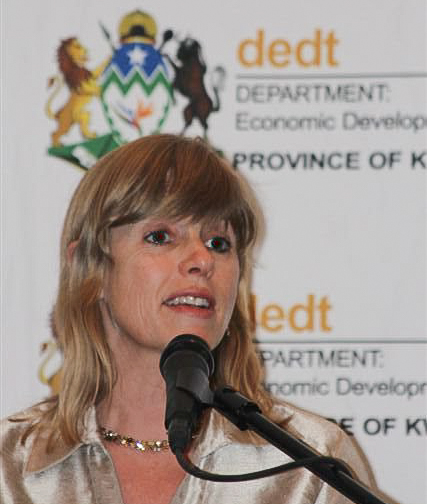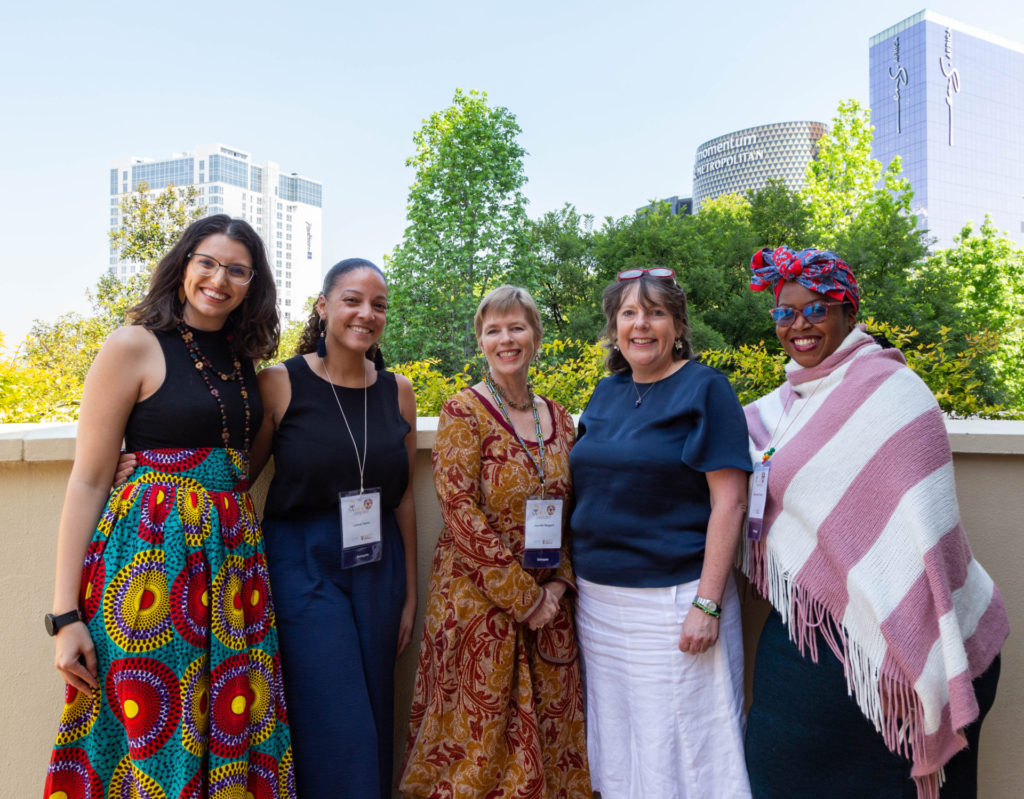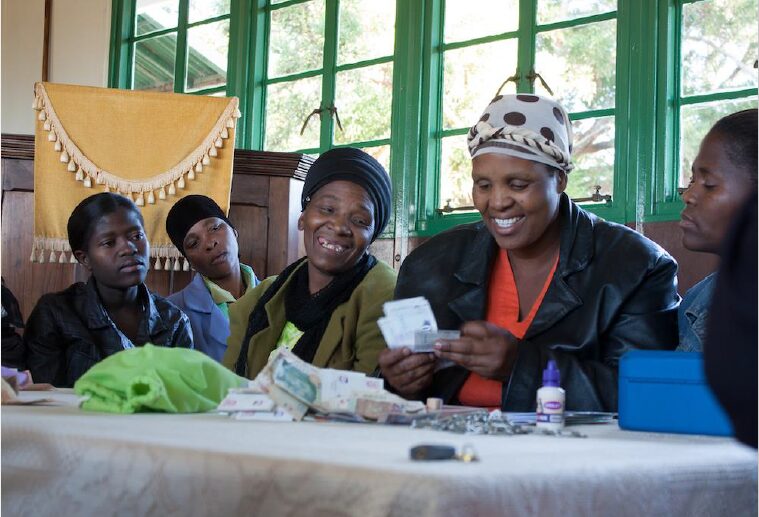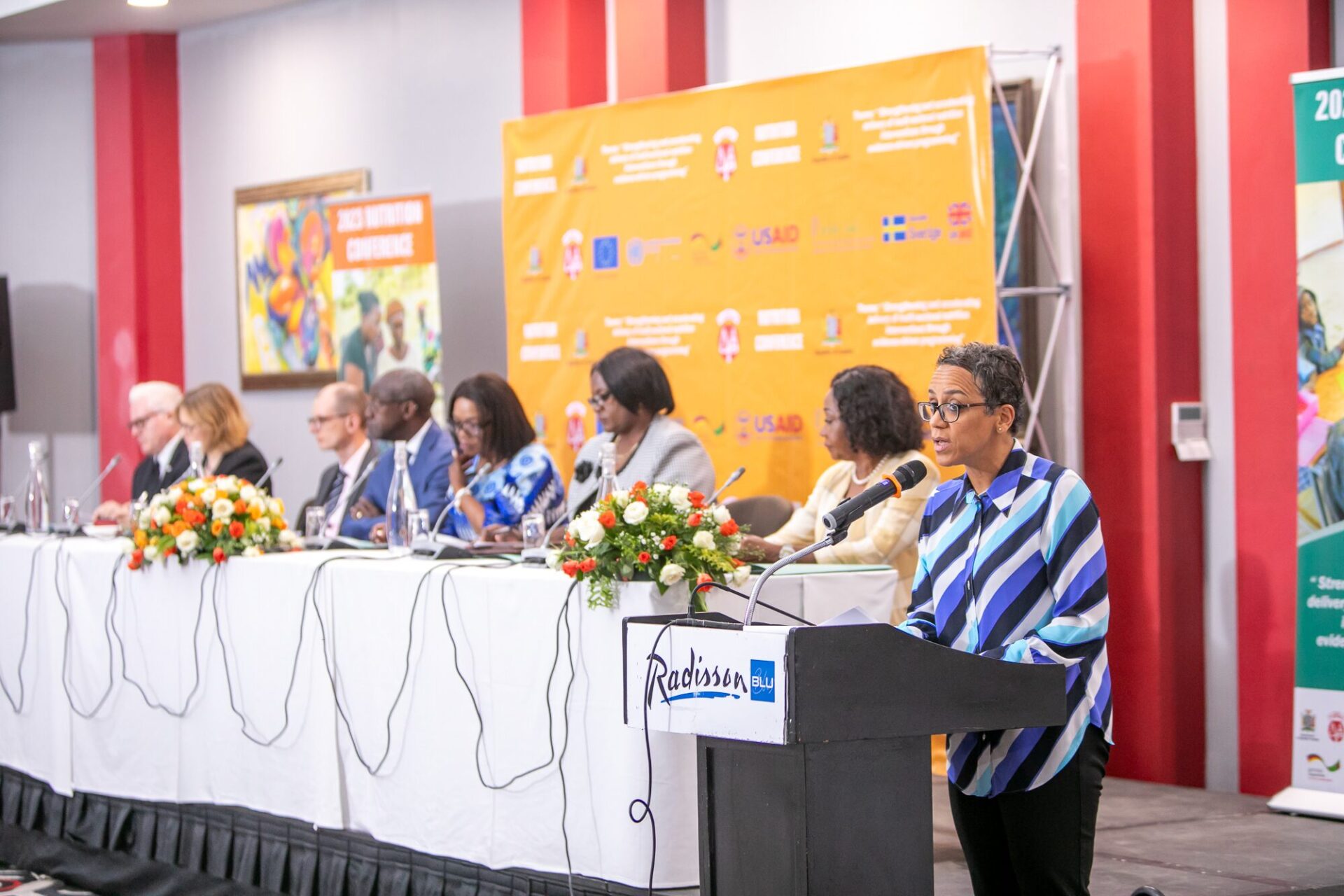By Heather Mason
Jennifer Bisgard, who co-founded Khulisa with Peter Capozza nearly three decades ago in October 1993, is leaving the organization for a two-year sabbatical. Today – just after Jennifer’s last day at Khulisa (for now) and Khulisa’s 29th birthday – we’re sharing some of Jennifer’s favorite memories from her Khulisa journey.
The Early Years
“I think of Khulisa like it’s a child,” Jennifer says. “In the first few years, one had to be super protective of it.”
In 1988, six years before the end of apartheid, Jennifer moved to South Africa to take a job at the U.S. Agency for International Development (USAID) office in Pretoria. “I was only the 13th person who worked there,” says Jennifer. “Because there was no bilateral relationship between the South African government and USAID, of course. It was under the Comprehensive Anti-Apartheid Act, and our mandate was to build Black leadership for a post-apartheid society.”
Jennifer ran USAID’s Education, Small Business, Development, and HIV/AIDS portfolios, while also assisting anti-apartheid activists who took shelter in the U.S. embassy, and attending pro-democracy rallies and marches. “If White American/European diplomats were present, people were much less likely to be shot by water cannons or guns,” Jennifer explained. “It was a very different time – it felt so oppressive.”
Democracy drew nearer, funding grew, and Jennifer began working on larger USAID projects. She began to think more about evaluation. “It was something I was very interested in,” she says. “When I was running these projects at USAID in Pretoria, I struggled to find evaluators. And so we ended up having to bring people into the country rather than finding South African evaluators.”
In 1993 Jennifer traveled to Swaziland to meet her friend and former USAID colleague, Peter Capozza, who also had a great interest in evaluation. They decided to start Khulisa together. Jennifer wanted to make sure her USAID grantees were served through the end of the American fiscal year on September 30th, so the new company officially began operating as Khulisa Management Services on October 1st, 1993. “We started out tiny,” Jennifer says. Khulisa had only three employees.

Jennifer (center-left) with some of Khulisa’s earliest team members: Peter (left), Mary Pat Selvaggio (center-right), and Michael Ogawa (right).
During Khulisa’s early years, Jennifer and her colleagues spent a lot of time educating potential clients about the value of evaluation. “I wanted to call us Khulisa Monitoring & Evaluation Services. But Peter said, ‘What if this M&E [monitoring and evaluation] thing is a flash in the pan?’ Evaluation was not well known in those days,” Jen explains, chuckling.
“We spent the first 10 years trying to explain to people what M&E was, endlessly. Because every person you met, you had to educate – explaining that evaluation is accountability, it’s building knowledge, it’s creating learning…It’s an opportunity to improve things.”
Khulisa’s first big project was with the Kagiso Trust, and the company also began working on several projects for the South African government. Jennifer is particularly proud of Khulisa’s nationwide evaluation of early childhood development (ECD) programs in South Africa, which assessed 250 ECD sites and was cited in Education White Paper 5 on Early Childhood Education.
But like most small businesses, Khulisa struggled to stay afloat during its early years. “We were teetering,” says Jen. “In our second or third year, we nearly went bankrupt.” But thanks to some clever financial planning and solid project designs, Khulisa survived.
The Teenage Years
“And then Khulisa became a teenager, and there were interesting growth spurts and teenage challenges.”
Khulisa grew bigger and stronger in the early 2000s, expanding its evaluations into the health, agriculture, and technology sectors. The company’s staff grew and so did its global reach.
Khulisa, and Jennifer in particular, also became very active in evaluation advocacy organizations in Africa. At the 2004 African Evaluation Association (AfrEA) conference in Cape Town, a group of evaluators began to talk about creating an M&E association in South Africa. “I ended up taking over the coordination of setting up SAMEA [the South African Monitoring and Evaluation Association] between 2004 and 2005…We launched SAMEA in November of 2005 and I was elected chair.” Jennifer oversaw the planning and launch of SAMEA’s first national conference in 2007, while “highly pregnant” with her second son, Thomas.

Jennifer in 2012, speaking at the launch of the SAMEA chapter in South African KwaZulu-Natal Province.

Jennifer (center) with her Khulisa colleagues (left to right) Jesse Webb, Leticia Taimo, Margie Roper, and Zamokuhle Thwala at the 2022 SAMEA conference recently.
Jennifer later became a member of AfrEA’s board and represented AfrEA at the International Organization for Cooperation in Evaluation (IOCE). Jennifer was also a founder of EvalPartners, a global movement advocating for the role of evaluation in every important decision.
Khulisa’s teenage years brought their share of challenges and worries. “We were on this nice growth trajectory. Then the 2008 recession hit, but for us it only hit two years later. In 2010, all our work started to dry up. We had to retrench people for the first time ever.” But by this point, Khulisa had solidified its role as a leading evaluation organization in Africa and beyond.
The Adult Years
“Then you get to your early 20s and the company is starting to really have a personality for itself – it’s not just identified with you.”
After raising Khulisa for many years longer than she has been raising her own children, Jennifer feels ready to let the company venture out on its own. “I don’t think I could leave if I didn’t feel like it’s very stable. We have lots of clients who use us for repeat business; it’s not solely based on relationships with me anymore.”
Today, Khulisa’s staff has grown from three to 30, and Khulisa has worked on scores of projects in 71 countries around the world. Jennifer and her team have also trained scores of emerging evaluators, many of whom entered the evaluation field through Khulisa’s successful internship program.
“I was an intern with USAID in Liberia, and felt that was super important,” says Jennifer. “We’ve had well over 100 interns from all over the world. And those interns are now flying. Lots of them are still working in the M&E fields all over the world…I am very proud of the fact that we’ve created all these jobs and set people on their career paths.”
What’s Next for Jennifer?
Jennifer certainly won’t be taking it easy during her “sabbatical”. She has accepted a two-year post as “Senior Adviser, Evidence & Insight” at the Mastercard Foundation, which seeks to create meaningful work opportunities for young people in Africa and Indigenous communities in Canada.
“It’s a very natural trajectory from my work at SAMEA and AfrEA,” says Jennifer. “I’m very intent on building institutional capacity on the continent…Are there methodologies and ways of evaluating things that are truly indigenous? I think there are.”
While we’re sad to see Jennifer go, the staff at Khulisa are incredibly excited to cheer her on for the next leg of her journey. We promise to live up to her expectations and keep growing while she’s away.



Dear Jennifer, lovely recap of the Khulisa child, teenager and adult adventure. Time to take a step back and enjoy the growth less proactively. All the best with the exciting sabbatical, Maria… one of the 100+ interns many years ago 😉